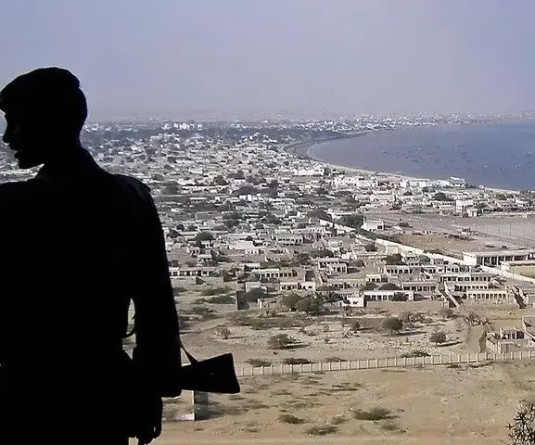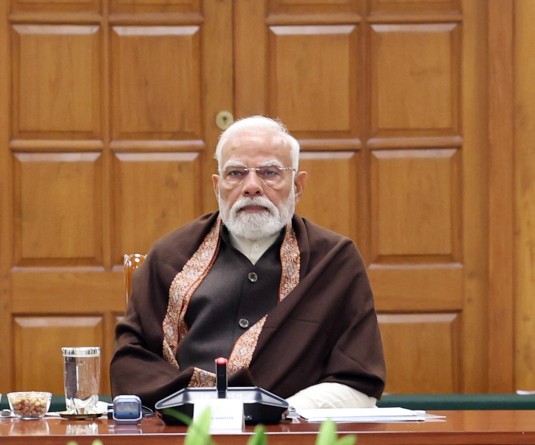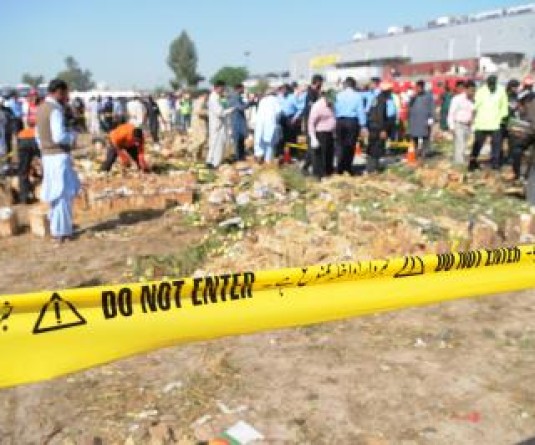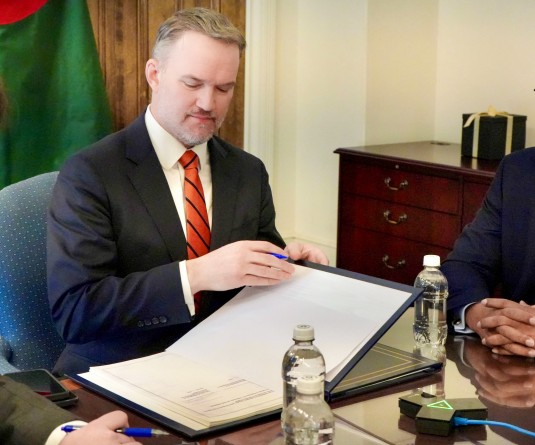FILE - A farmer chops down what is left of a tree in a burnt down forest in Ankazobe, Madagascar, Nov. 5, 2022. Parts of the forest, west of the capital Antananarivo, were set on fire to make way for farming and firewood. Nearly 50 heads of states or governments on Monday take the stage in the first day of “high-level” international climate talks in Egypt with more to come in following days. (AP Photo/Alexander Joe, File)
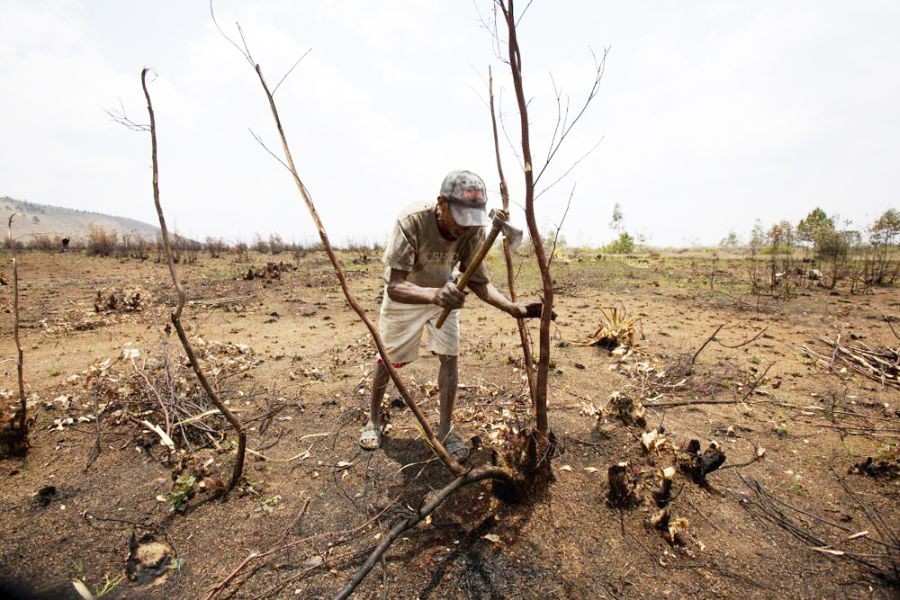
COP27: UN chief tells climate summit in Egypt
SHARM EL-SHEIKH, November 7 (AP): With the world on “a highway to climate hell with our foot on the accelerator,″ the United Nations chief on Monday told dozens of leaders to “cooperate or perish,” on avoiding further climate catastrophe, singling out the two biggest polluting countries, China and the United States.
He was not the only one preaching with tones of fire and brimstone, alternating with pathos and tragedy, trying to shake up the world’s sense of urgency at this year’s annual U.N. climate conference. “Choose life over death,” former U.S. Vice President Al Gore urged. “It is not time for moral cowardice.”
In calling for a massive overhaul of international development loans and a 10% tax on fossil fuel companies that made “$200 billion in profits in the last three months,” Barbados Prime Minister Mia Mottley said, “Our people on this Earth deserve better.”
“I don’t need to repeat the horror and the devastation wrecked upon this Earth over the course of the last twelve months since we met in Glasgow,” Mottley said. “Whether the apocalyptic floods in Pakistan or the heat waves from Europe to China or indeed in the last few days in my own region, the devastation caused in Belize by Tropical Storm Lisa or the torrential floods a few days ago in St. Lucia.”
Ahead of this year’s conference, known as COP27, leaders and experts have been ringing alarm bells that time is fast running out to avert catastrophic rises in temperature. But the dire warnings may not quite have the effect as they have had in past meetings because of multiple other challenges of the moment pulling leaders’ attention — from midterm elections in the U.S. to the Russia-Ukraine war.
More than 100 world leaders will speak over the next few days at the gathering in Egypt, most from developing countries demanding greater accountability from the richest, most polluting nations. Much of their focus will be on telling their stories of being devastated by climate disasters, culminating Tuesday with a speech by Prime Minister Muhammad Sharif of Pakistan, where summer floods caused at least $40 billion in damage and displaced millions of people.
“Is it not high time to put an end to all this suffering,” the summit’s host, Egyptian President Abdel Fattah el-Sissi, told his fellow leaders. “Climate change will never stop without our intervention... Our time here is limited and we must use every second that we have.”
El-Sissi called for a new pact between rich and poor countries to make deeper cuts in emissions with financial help and phasing out of coal in rich nations by 2030 and elsewhere by 2040. He called on the United States and China — the two biggest economies — to especially work together on climate, something they used to do until the last few years.
“Humanity has a choice: cooperate or perish,” Guterres said. “It is either a Climate Solidarity Pact – or a Collective Suicide Pact.”
Guterres insisted, “Today’s urgent crises cannot be an excuse for backsliding or greenwashing.”
Leaders of China and India — both among the biggest emitters — appear to be skipping the climate talks, although underlings are here negotiating. The leader of the top polluting country, U.S. President Joe Biden, is coming days later than most of the other presidents and prime ministers on his way to Bali.
The leaders showing up in droves are from the host continent Africa.
“The historical polluters who caused climate change are not showing up,” said Mohammed Adow of Power Shift Africa. “Africa is the least responsible, the most vulnerable to the issue of climate change and it is a continent that is stepping up and providing leadership.”
“The South is actually stepping up,” Adow told The Associated Press. “The North that historically caused the problem is failing.”


